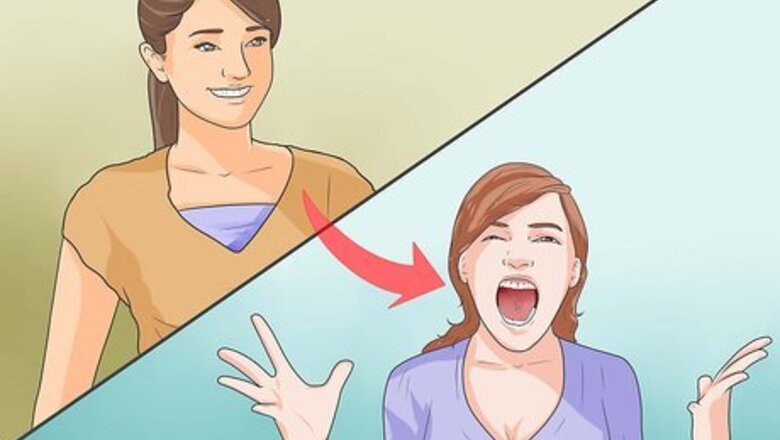
views
Recognizing Warning Signs of an Abusive Personality
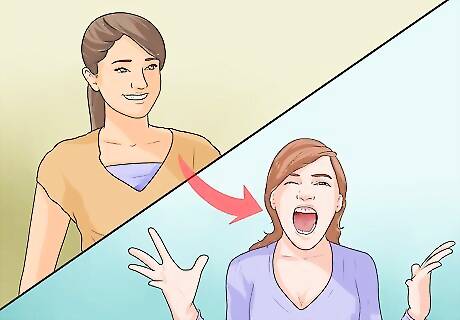
Look for “mood swings” and other signs of emotional disturbance. Abusive people often fluctuate between extremes of emotion. They may seem to have a “snap” emotional reflex or be hypersensitive. Mood swings and explosive emotions, especially anger, are common, as is “bottling up” emotions. Abusers are often “codependent.” They feel as though they cannot be complete without another person and depend on the other person for fulfilling all of their needs.
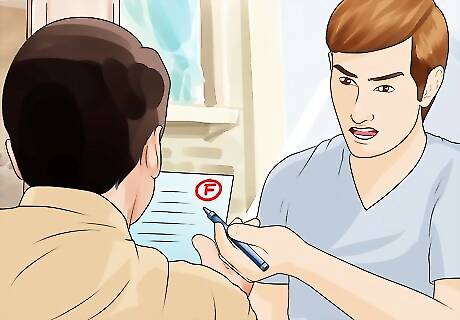
Look for perfectionism. Abusers often have extremely unrealistic expectations. They may expect perfection or say things like “You’re the only person I need.” When things do not meet these unrealistic expectations, abusers are likely to get angry. Abusive people may also become angry or violent over even minor issues, such as their child's low grade on a test or a grocery bill that's higher than usual.
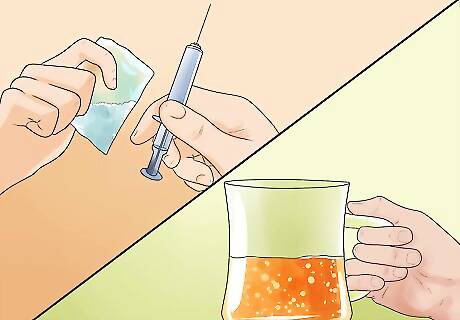
Look for substance abuse. While this is not the only cause of domestic violence, some abusers may abuse alcohol or drugs. They may excuse their actions as a result of their substance use. A person does not simply “become” violent when they drink. Domestic violence is not the product of a loss of control. It is a pattern of abuse designed to keep you under their control. Some abusers may force their partners to take drugs and alcohol against their will. An abused partner may also partake in drugs or alcohol as a way to “manage” their abuser.
Recognizing Emotional Abuse
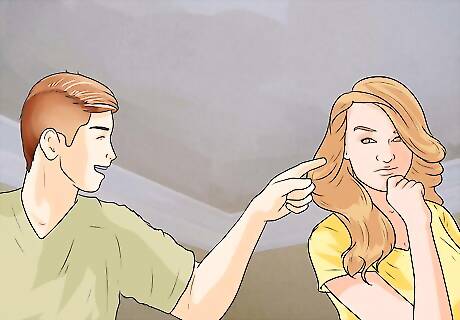
Think about how the other person speaks to you. Belittling, humiliating, disrespecting, or intimidating are not present in healthy relationships. To determine whether you may be dealing with an abusive person, ask yourself the following questions: Do you feel constantly criticized, as though you aren’t good enough? Does the other person call you names or abusive terms? Does the other person tell you that you don’t “deserve” anything good, or that you will never find anyone better than them? Does the other person make fun of or ridicule you? Do you feel like you’re always put down, dismissed, or ignored? Does the other person scream or yell at you? Do the things the other person says make you feel bad about yourself?

Think about how you feel around the other person. It can be hard to recognize abuse as such if physical abuse hasn’t happened. However, you might feel like something is “off” about the relationship. You may feel like you’re “walking on eggshells” around the other person, or like you never know what will set them off. You may feel like you are to blame for any problems in the relationship. These are very common signs of emotional abuse. Abusers often try to manipulate their victims through blame and guilt. Ask yourself the following: Do you feel exhausted or tired all the time, especially around the other person? Does it feel like this person “sucks the life” out of you? Do you feel uncomfortable around the other person? Embarrassed? Angry? Does the other person tell you that their feelings or actions are your fault? Do you feel bad about yourself when you are around this person? Do you feel responsible for the other person’s actions? Do you feel “nitpicked” to death over small things?
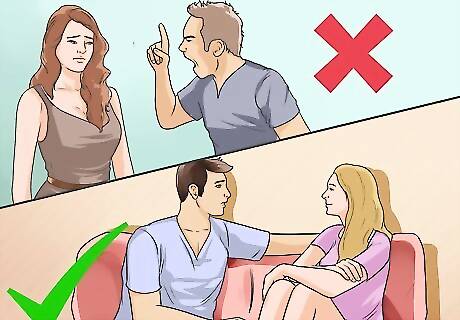
Consider whether you feel threatened. Healthy relationships, whether they’re between a parent and child, romantic partners, or coworkers, should make both parties feel safe and supported. If you feel threatened, unsafe, or as though the way the other person treats you is contingent on what you do, you may be with an abusive person. Abuse isn’t limited to personal or family relationships. Work relationships can also be emotionally abusive. An employer may threaten to fire you if you do not do something they want, or refuse to promote you if they don't like you.
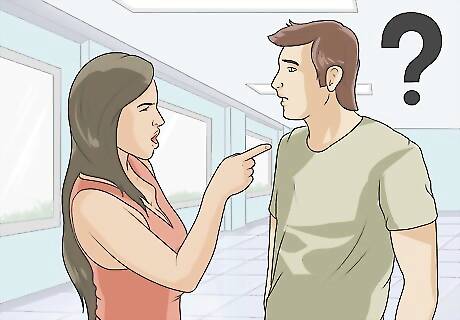
Listen for blaming statements. An abusive person does not accept responsibility for their actions. They will likely try to blame other people for their own feelings and actions. They may blame a lack of success on fate or other people. Especially in romantic relationships, blaming statements may sound flattering to you, at least at first. The other person may compare you favorably to other people, such as saying “Those other people I dated always made me so weird” or “You’re so much better than the other horrible people I went out with before.” Abusive people push the responsibility for their feelings and actions onto to others. For example, an abusive person who uses physical violence may say “you make me so mad that I have to hurt you” or “I wouldn’t have to hit you if you learn to do what I want.” Remember: each person is responsible for their own actions. You are not responsible for what someone else does or says. Abusive people are often very resentful of others. They feel as though life is constantly “unfair” and they blame others for this.
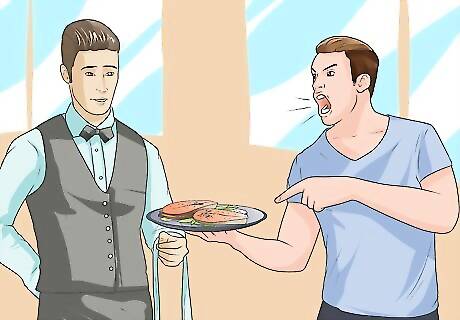
Look at how the other person acts. Abusive people are often self-absorbed. They generally feel entitled to special treatment and benefits, and they become angry or sensitive when they don’t get what they want. They are usually emotionally volatile and may “go off” over even minor issues. Abusive people are often unkind or cruel to others, especially those in positions with less power, such as restaurant servers and others in the service industry. They may belittle, scream at, or mistreat these people. They generally have a strong sense of superiority to others, and may belittle others to make themselves feel better. Abusive people often lack proper boundaries. They may push for romantic intimacy or commitment very early, or talk about things like “love at first sight.” They may make overly personal or inappropriate revelations very early on and demand the same from you. Abusive people often have unrealistic expectations. They may expect perfection and become angry if they don’t see it. They may also rely on you for all of their emotional needs and expect you to do the same.

Consider whether you feel like you have freedom. Abuse is a pattern of behavior that is specifically designed to exercise control and power over another person. Abusive people do not allow other people freedom. They are usually exceedingly jealous and controlling. Consider whether you notice any of the following: The other person requires you to “check in” with them all the time You are not “allowed” to be on your own, go to places by yourself, or see friends without the other person present You are required to get permission or confirm all of your plans with the other person You are not allowed to use a cellphone or computer without the other person’s knowledge, or your use is heavily monitored You are isolated from others, including friends, relatives, and coworkers Obviously, the level of freedom you have depends on your age and other factors. Parents not allowing a teenager to go to a party at 2AM on a school night are not improperly restricting their child’s freedom. However, something like not allowing a child to see friends or go to school could be a sign of abuse.
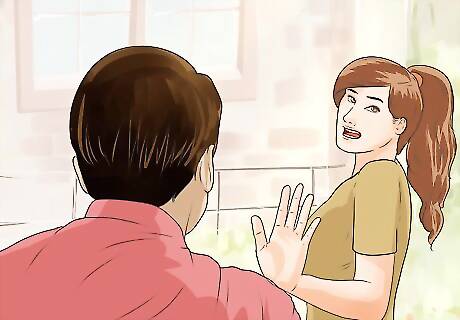
Think about whether you feel heard. Refusing to acknowledge your needs and desires is a common tactic among abusive people. If you consistently feel as though your needs and opinions don’t matter or are dismissed, you may be with an abusive person. Healthy relationships still have conflicts. The difference is that in a healthy relationship, both partners listen to each other and work together to find a resolution to the issue. Abusive people do not collaborate. They blame the other person for failures and dismiss ideas and opinions that aren’t theirs. Abusive people insist that their version of events is the “right” one. Abusive people will usually not allow you to have a different opinion about a situation or experience. They may insist that you accept the “facts” that they are giving you as absolutely true. This applies in work situations, too. You should always feel as though you are able to raise questions and concerns at work without fear of retaliation.
Recognizing Physical Abuse
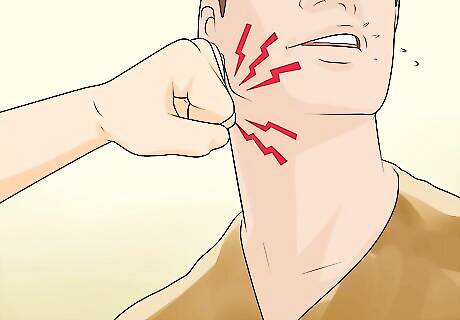
Understand that there’s no “acceptable” violence. Physical abuse comes in many forms, and it is the type of abuse that most people are familiar with from movies and TV. Physical abuse may be punching, hitting, kicking, choking, or grabbing. The abusive person may excuse this violence as “just what happens when I’m angry” or blame it on you. There is no excuse for violence. Even “occasional” violence is a sign that the person has serious issues that require counseling. Studies show that if a person is willing to use violence once, it is likely that they will continue to get worse. Some people and cultures respect physical punishment as an appropriate way to discipline children. While most child development experts do not recommend this, there are still differences between discipline and abuse. If the punishment causes any impairment or dysfunction -- for example, bruising, pain, trouble walking -- it is considered abuse. Striking a child on the face or head is considered something that should never be done, even as punishment.
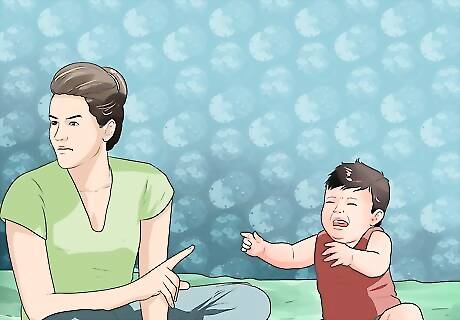
Think about how the other person uses physical contact. In addition to the physical violence mentioned above, there are ways to abuse someone physically by withholding contact, too. Abuse is a way to maintain control over someone, and if the other person uses physical contact to manipulate or control you, it’s a good sign they’re abusive. This may be especially common for children. Parents may abuse a child by limiting their physical expressions of affections, such as refusing hugs or kisses when a child is “bad.” Abusive people may withhold sex or other displays of physical affection from their partner as a “punishment” or as a manipulation or threat to get something they want.
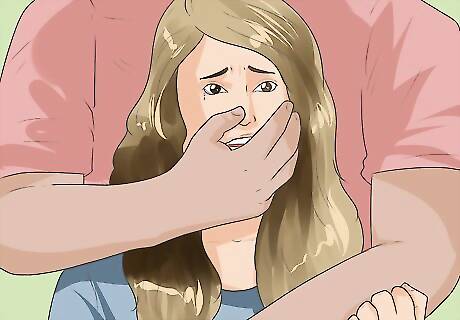
Consider how the other person uses sex. An abusive person may attempt to manipulate another person by using sex as a weapon. Abusive people may use coercion or threats to get you to have sex with them. They may force you to perform sexual acts that you do not want, or engage in sexual activities when you aren’t interested. Abusive people may also interfere with your ability to make decisions about safer sex practices, birth control, and pregnancy. Sexual abuse can happen to men and in same-sex relationships too.
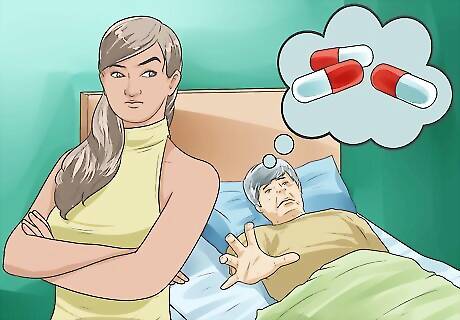
Look for signs of neglect. Neglect is a particularly common type of abuse of children and the elderly, who often cannot adequately care for themselves. Neglect occurs when a person’s needs are not met. Signs of neglect often include unusual behavior and developmental problems. Neglect can be physical, emotional, educational, or medical. Signs of neglect in children include slower development (possibly due to malnutrition), poor hygiene, unattended medical needs, and frequent absence from school. Neglected children may not experience sufficient emotional support from their parents or may be left isolated and alone frequently. Neglect is involved in more than half of all reported cases of elder abuse. It may be intentional or unintentional. Signs of elder neglect include things like bedsores, unusual weight loss, poor hygiene, and unattended medical and personal needs.
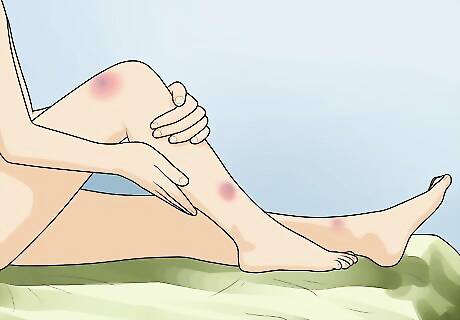
Look for bruises and injuries. Physically abused people will often have bruises, bite marks, or other injuries. They may try to cover these up with makeup or clothing. When asked to explain these injuries, they will often blame it on “clumsiness” or an accident. The explanations or excuses are rarely in line with the severity of the injury. Abused infants may have respiratory problems, vomiting, or unusual behaviors or responses.



















Comments
0 comment